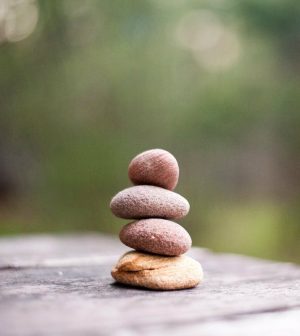- Finding Unshakable Power in a World That Wants to Pull Us ApartPosted 6 months ago
- What could a Donald Trump presidency mean for abortion rights?Posted 6 months ago
- Financial Empowerment: The Game-Changer for Women in Relationships and BeyondPosted 7 months ago
- Mental Health and Wellbeing Tips During and After PregnancyPosted 7 months ago
- Fall Renewal: Step outside your Comfort Zone & Experience Vibrant ChangePosted 7 months ago
- Women Entrepreneurs Need Support SystemsPosted 7 months ago
What’s The Big Fuss About Mindfulness & Meditation?

By Ed and Deb Shapiro
It’s really happening! Mindfulness and meditation are infiltrating our lives like old friends. But this poses a conundrum. With health reports saying we would all benefit practicing mindfulness and meditation, and with classes easily available, why do many of us ignore this or find excuses not to try? How ironic that the best things for us are those we avoid the most, which is like being addicted to poison while resisting the antidote.
We both discovered the wonder of meditation early on in our lives—Ed as a part of the ‘love generation’ living in a commune in New York City, while Deb was a teenager living in London and going to meditation retreats —so we love sharing the greatest thing mankind has ever discovered: the art of being quiet. Also, it’s a very cool thing to do.
“Meditation, past calming our nerves, past being good for our blood pressure, past working out our own internal psychological dramas, which it does, past helping us to get along with our kin and our community, is a way of seeing the truth that the only way to ameliorate our suffering is to keep our minds clear,” says meditation teacher Sylvia Boorstein.
The equation is simple: as meditation becomes an intimate part of our lives, so we evolve and change. When we evolve and change then we move into a more wakeful, wise, and loving state. And all that we have to do for this chain of events to occur is learn to be still.
The opposite of this is discomfort, stress, and suffering, usually due to the desire for things to be different from how they are, and the longing to escape from what appears as a dissatisfying present. The word suffering comes from the Pali word dukkha, which means not only suffering but also all its varied family relations, such as discomfort, pain, anguish, dissatisfaction, failure, conflict, hurt. What do we do when one of these comes knocking at our door?
“We are typically rushing past our experiences; we rehearse what we want to say, recollect what we should have done, hoping, fearing, living in drama,” says author Michael Carroll. “In meditation we can observe this internal drama, chatter and panic, and discover a profound depth to our lives that had previously been overlooked.”
Mindfulness and meditation ease suffering while developing the awareness to move beyond the greed and ignorance that caused the suffering in the first place. There is a sanity and brilliance to this, from awakening inner strength, kindness and fearlessness to inviting radical change.
“Like a drama queen, I always felt my emotions very intensely, so the typical egotistical stories I told myself were: you’re a fraud, you open your mouth and nothing will come out, everyone else is here at Harvard because of merit but you’re here because of some bizarre error, soon they will find out you don’t belong,” says inspirational teacher Joan Borysenko. “One of my lab partners then said, ‘You actually believe what goes on in your mind, and you’re always manufacturing really scary stories.’ I was aghast; it was so true. He said, ‘When I meditate I don’t buy into the stories anymore.’ I tried it and he was right. It totally changed my relationship to my story.”
Chaos is natural—the universe is organized chaos—so to find inner peace in the midst of this is vital. Sanity comes by having an attitude of non-grasping. If we hold on, whether to resentment, irritation, hurt, or even anger, more suffering is generated. Our mind gets caught up in the emotion and we lose our balance. Letting go doesn’t deny our feelings, but it does keep us connected to awareness.
“Mindfulness shows up in real-life situations where maybe somebody is pushing our buttons and we would normally respond in an aggressive and habitual response,” says yoga teacher Cyndi Lee. “When we are mindful of our feelings, we can make a choice of the action we want to take, instead of thoughtlessly reacting. Without that awareness, we have no options.”
Think of the water in a lake. When the water is disturbed then the waves and turmoil distract us, but when the water is calm then the still depths can be seen below. Beneath our dramas and conflicts there is a sane and quiet place to rest in. Mindfulness is an invitation to abide in that stillness, which deepens and expands our awareness. No longer restricted by a narrow worldview, we step into a bigger, more inclusive picture, greater than the story and our part in it.
Extracted from The Unexpected Power of Mindfulness & Meditation.
*********
 Ed & Deb are the authors of newly released: The Unexpected Power of Mindfulness & Meditation. Deb is the author of Your Body Speaks Your Mind, now in 19 languages. They have six meditation CDs. See more at EdandDebShapiro.com
Ed & Deb are the authors of newly released: The Unexpected Power of Mindfulness & Meditation. Deb is the author of Your Body Speaks Your Mind, now in 19 languages. They have six meditation CDs. See more at EdandDebShapiro.com






